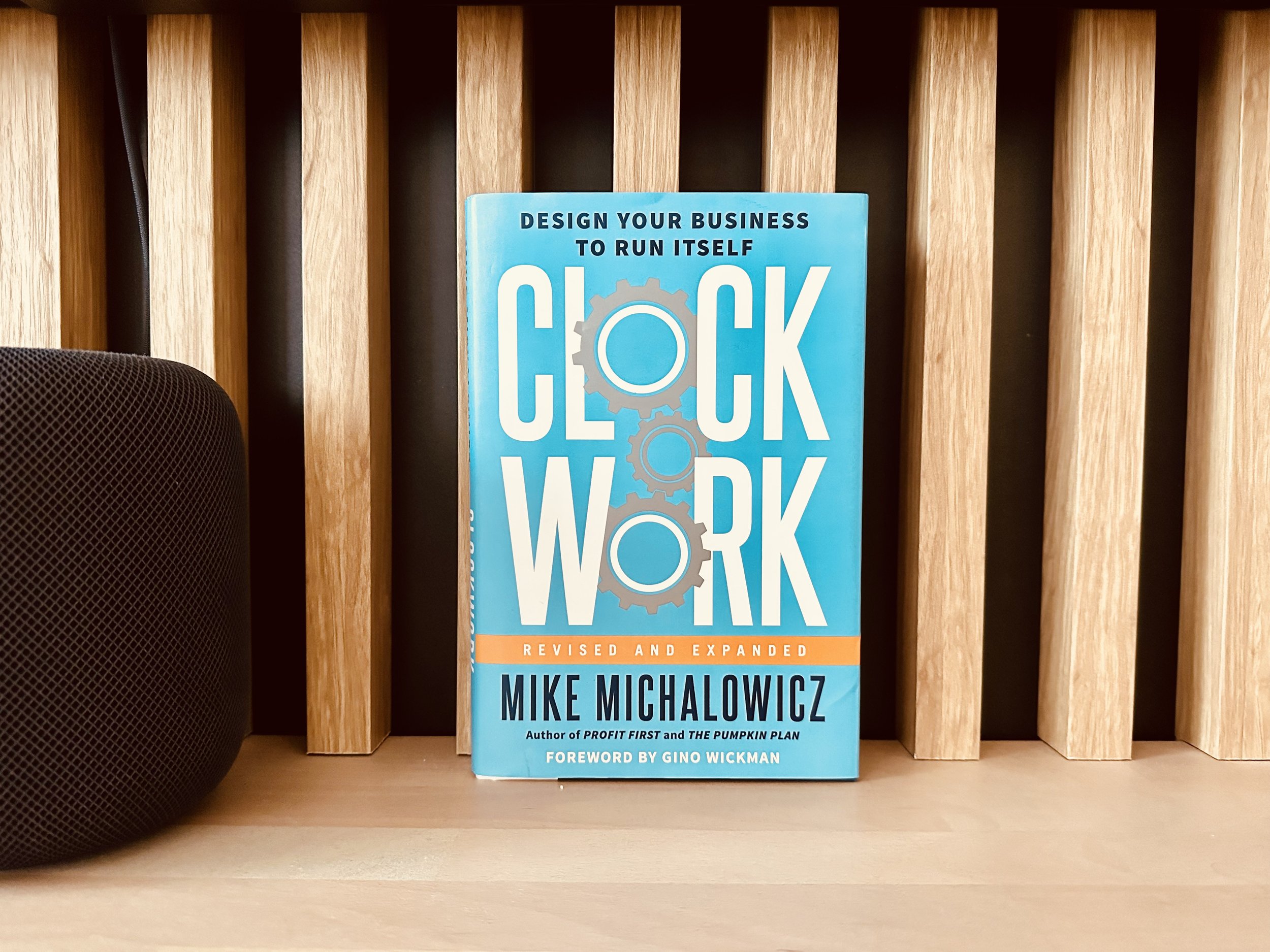Bratislava
Discover Bratislava
Touch4IT has created a quick tips guide for visitors of Bratislava. Feel free to download it.
Takeaways: Clockwork - Design Your Business to Run Itself
My takeaways from reading the book: Clock Work by Mike Michalowicz
Clockwork: Design Your Business to Run Itself by Mike Michalowicz, focusing on how these principles can be applied for more profound business transformation:
1. The 4D Mix: Deep Dive
Think of running a business like playing a video game with four levels:
Doing:
The hands-on work. Most business owners start here but should aim to reduce time spent in this phase.
Deciding:
Making decisions for others. It’s a trap that feels like delegating but actually creates more dependency on the owner.
Delegating:
True delegation empowers employees to make and act upon decisions within their roles.
Designing:
The ultimate goal where the owner focuses on visionary work, strategy, and designing the systems that allow the business to thrive independently.
To transition through these phases, Michalowicz suggests meticulously analyzing how you spend your time and consciously shifting efforts towards designing, which includes systematizing operations and strategic thinking.
2. The Queen Bee Role (QBR):The Most Important Job.
Imagine your business is a beehive. The most important job is like the queen bee's role. Everything in the hive supports the queen bee because without her, there are no new bees. Find out what's the "queen bee" job in your business and take super good care of it.The QBR is the most critical activity in your business that supports its core purpose and value proposition. It's about identifying what your business does better than any other—its reason for being. Once identified, everything in the business should support and protect this role. For example, if a bakery's QBR is crafting unique, high-quality pastries, all efforts should ensure that this process is prioritized and protected from distractions or dilution.
3. Capture Systems: Like a Recipe Book
Think of making your favorite cookie. You have a recipe that tells you exactly what to do, so they come out great every time. For a business, write down recipes (systems) for everything you do, so anyone can follow them and get it right, just like your cookies.
Creating detailed documentation for every operational process ensures consistency and quality. This step is vital for scaling and delegating effectively. It involves:
Mapping out each step of a process.
Identifying tools, resources, and outcomes for each step.
Continuously updating the system as improvements are made.
This approach not only helps in maintaining quality as tasks are delegated but also in onboarding new team members efficiently.
4. Empowerment Through Delegation: Team Captains
When you're the captain of a team, you don't just tell everyone what to do; you help them understand the game so they can make smart plays, even when you're not there. In a business, it's like making everyone a mini-captain of their job.
Effective delegation involves assigning responsibility for outcomes, not just tasks. This means:
Providing clear expectations and resources.
Allowing team members to own their decisions and methods.
Creating a feedback loop for continuous improvement.
This shift from task-based to outcome-based delegation encourages innovation and engagement among team members, fostering a more dynamic and resilient organization.
5. Measure What Matters: Scoreboard
In a game, you know you're winning by looking at the scoreboard. In a business, pick a few important scores to keep track of, like how many customers are happy or how much money you're making. This way, you always know if you're winning.
Identifying a few key performance indicators (KPIs) that genuinely reflect the health and progress of the business is crucial. These metrics should directly relate to the QBR and overall business objectives. Focusing on these KPIs helps streamline efforts and resources toward what truly drives growth and efficiency.
6. Developing a Comprehensive Business Operating System: The Game Rules
Every game has rules. Your business should have its own rulebook, which tells everyone how things work, what's important, and how to make decisions. This helps everything run smoothly, even if you're not there.
A business operating system encompasses the processes, tools, and rules that keep the company running smoothly. This system should be designed to:
Support the QBR.
Facilitate effective delegation and decision-making.
Ensure financial health and sustainability.
7. Achieve Financial Health: Save Before You Spend
When you get your allowance, if you save some before you start spending, you'll always have money for something important later. A business should do the same: save some money first, then spend what's left. It keeps the business healthy.
Michalowicz emphasizes the importance of understanding and managing cash flow, profit margins, and operational costs. Achieving financial health means:
Implementing a profit-first approach.
Regularly reviewing financial performance against goals.
Planning for sustainable growth.
8. Continual Optimization: Always Improving
Imagine you build a LEGO set but then keep tweaking it to make it cooler or work better. With a business, always look for ways to improve, make things work better, and keep everyone happy and excited.
A key aspect of designing your business to run itself is the commitment to continuous improvement. This involves:
Regularly reviewing and refining processes.
Seeking feedback from team members and customers.
Staying adaptable to changes in the market or industry.
By deeply embedding these principles into your business operations, you create a resilient, efficient, and ultimately self-sustaining business that allows you to focus on growth, innovation, and personal freedom. Each of these takeaways is about building a foundation that not only supports the current success but also paves the way for future growth and opportunities.
This book is completely worth reading
I gotta admit, my memory isn't exactly elephant-level, so I find it super helpful to scribble down the cool stuff I get from books, like what inspires me. And yeah, I'm totally cool with sharing those bits with you guys.



